Kensington House by Peter Vernon Architects is a modern, but sensitively sized addition transforming an existing interwar home and saturating it in natural light - in-spite of a tiny site.
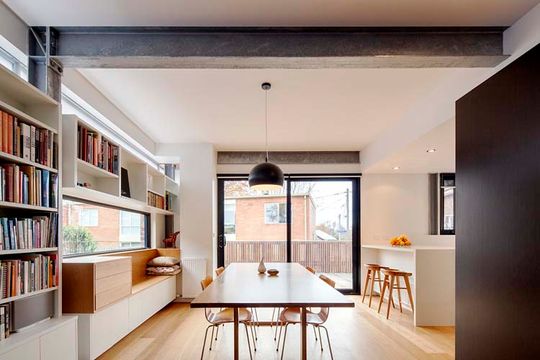
Alterations on a Small Site
The project is alterations and additions to an interwar bungalow on a small site of just 137 square meters in the inner Melbourne suburb of Kensington.
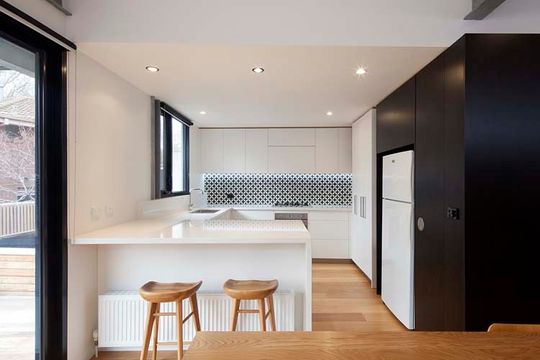
Low Rise Neighbourhood
The street is characterised by one to two-storey houses of various styles and ages facing the embankment of a railway line to the west.
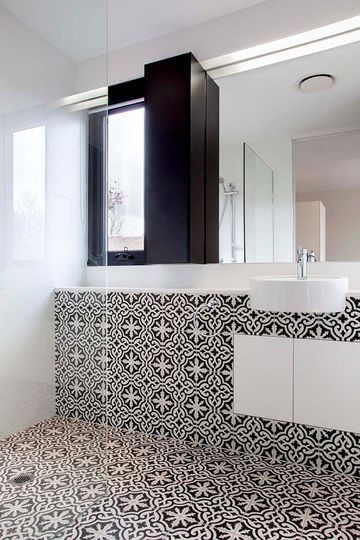
Fitting into the Neighbourhood
Kensington House responds politely to its neighbourhood, matching the scale of other houses in the street. The home is discrete in its use of materials, by day dappled by the shade of plane trees and at night transformed by the deployment of various forms of direct and indirect lighting.
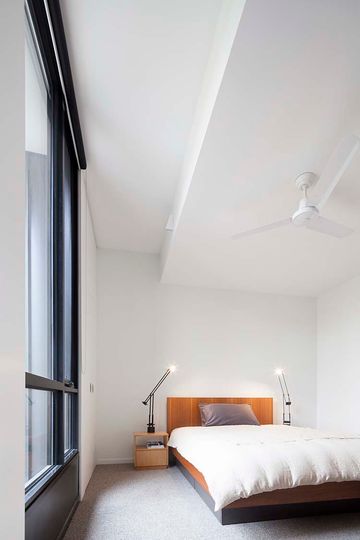
Local Materials
The grey steel box of the first floor addition is supported on exposed steel portals and floats above more familiar materials such as brick and weatherboards. The use of steel is a reference to the railway infrastructure nearby and the industrial heritage of the suburb, while the mixture of other materials anchors the home in the suburb's mixture of development.
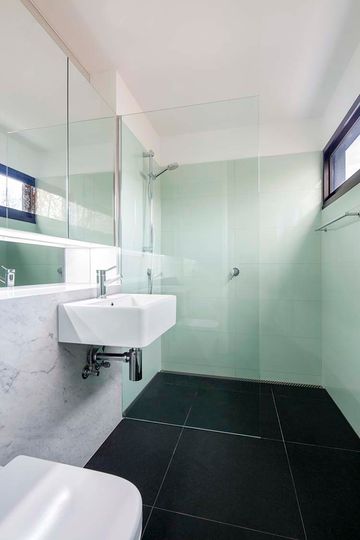
Maximum Living, Minimum Footprint
Working within the confines of the site, the design manages to fit a three-bedroom house on a tiny site, whilst opening up to natural light. The design takes advantage of an outlook to the lanes and road on three sides. The new work actually has a smaller footprint than the original house at ground floor level to maximise outdoor living areas.
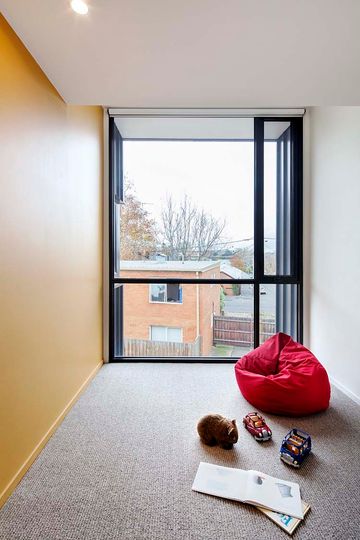
Cantilevers
All but the footings and side boundary walls of the existing house were demolished. The upper level cantilevers over the lower floor which provides the benefit of shading the lower level.
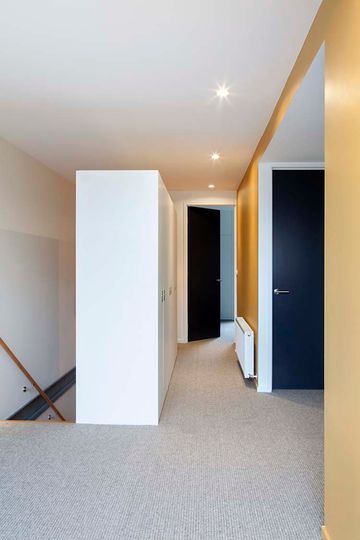
Architect/Owner/Builder
The Architect/Owner managed to contain costs through acting as the builder, hiring trades as sub-contractors. This eliminated the builder's margin, and additional savings were made via 'sweat equity' — working with a broom and shovel on weekends. The downside of this approach meant the project was quite protracted in length.
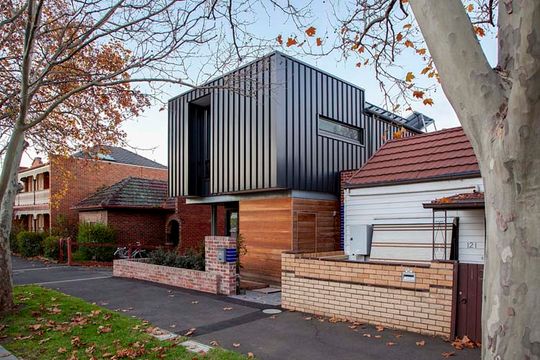
Sustainability
To maximise the sustainability of the project, Kensington House features:
- Gas hydronic heating - one of the most physiologically comfortable and efficient forms of heating
- Not air-conditioning. Ceiling fans and natural ventilation for cooling
- Rainwater tanks for watering the garden and flushing toilets
- Predominantly LED lighting
- 2.65 kW PV solar electricity system
- Solar hot water
- Draft seals to fans, doors and windows
- Low-E glass to rear windows, argon filled double glazing facing the west and the train line
- Bricks salvaged from demolition were reused in the new work
- Timber cladding is recycled
- Footings and side boundary walls of the existing house were retained
- Insulation to floors, walls and ceiling
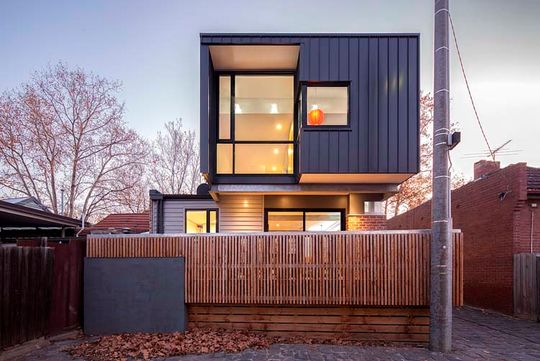
.jpg)
Kensington House
Known to some in the community as the 'Shipping Container', Kensington House was the source of much interest as it was constructed. Since completion it has been accepted favourably, a testament to its modern, but sensitive design.